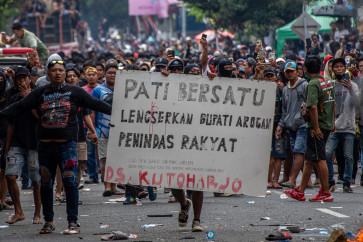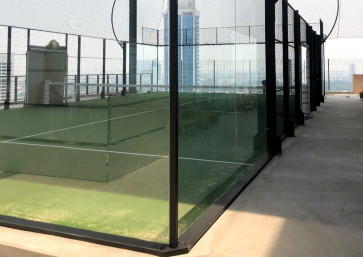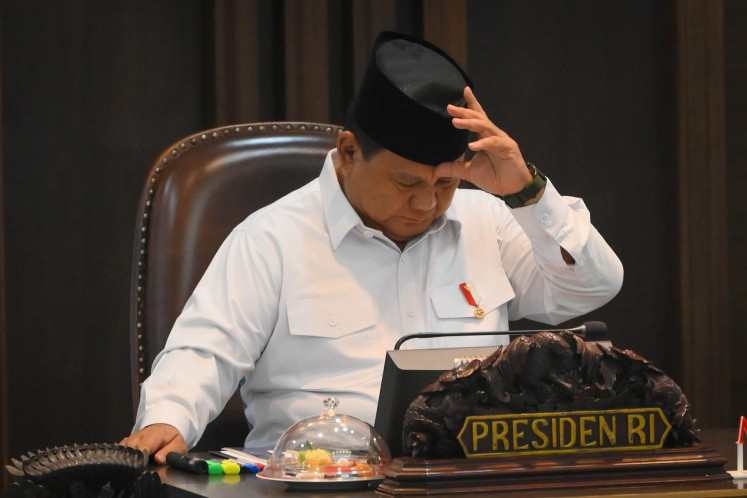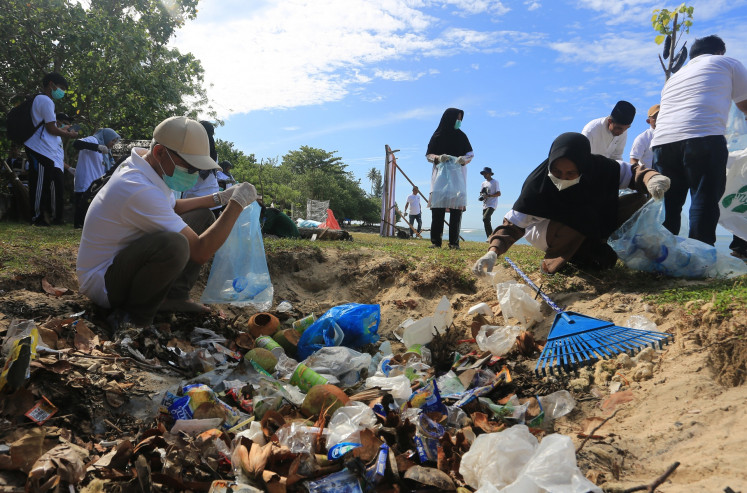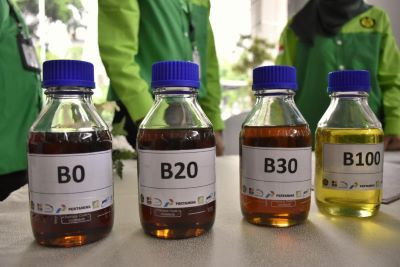Popular Reads
Top Results
Can't find what you're looking for?
View all search resultsPopular Reads
Top Results
Can't find what you're looking for?
View all search resultsOil companies look to boost exploration
Snapshot: A journalist takes a picture of the Jempang-Metulang platform in the Mahakam oil and gas block, 40 kilometers offshore Balikpapan, East Kalimantan, in this file picture
Change text size
Gift Premium Articles
to Anyone
S
napshot: A journalist takes a picture of the Jempang-Metulang platform in the Mahakam oil and gas block, 40 kilometers offshore Balikpapan, East Kalimantan, in this file picture. The Indonesian Petroleum Association (IPA) has reiterated its commitment to boosting exploration activities next year. (JP/Adri)
The Indonesian Petroleum Association (IPA) acknowledges that the past four years have been challenging for the oil industry but remains committed to boosting exploration activities next year, even with the government’s bearish outlook for the industry.
“We see this as a push to prove that we need more oil and gas exploration. We have around 128 basins in Indonesia, according to experts, more than half of which are unexplored,” said IPA executive director Marjolijn “Meity” Wajong at a media gathering in Jakarta on Aug. 20.
She said the association’s optimism was propped up by the rising number of successful auctions for oil and gas blocks in Indonesia over the past two years, which suggested that investor interest in the country was “beginning to be palpable”.
Indonesia sold five oil and gas blocks in 2017 and nine the following year. None of the oil and gas blocks auctioned in 2015 and 2016 were sold when crude oil prices slumped to record lows, according to Energy and Mineral Resources Ministry data.
The turning point came when the ministry issued a regulation in 2017 introducing a gross-split scheme in oil production sharing contracts. The scheme made it easier for companies to calculate their earnings than the preceding cost-recovery scheme, thus motivating them to invest in the country.
“We had declining investment and production, but we’re convinced that’s going to turn around. And that’s going to take collaboration and cooperation between all parties and the government to ensure that we have an environment that continues to be attractive for investment,” said IPA acting president Bij Agarwal.
However, in stark contrast to the IPA’s optimism over recent auctions, nationwide oil production declined from 794,000 barrels per day (bpd) in 2014 to 752,000 bpd as of this year’s first half, according to ministry data.
Meity pointed out that oil production was above the targeted 580,100 bpd for this year stipulated in the General Planning for National Energy (RUEN) road map, but output was still below the government’s target of 755,000 bpd for this year.
Energy and Mineral Resources Minister Ignasius Jonan announced on Thursday that the government expected oil production to reach 755,000 bpd next year — unchanged from this year’s target — and saw the Indonesian crude price (ICP) at US$63 per barrel, down from the expected $70 this year.
“The ICP after July — in August — was already below $60 per barrel. This is a challenge on its own,” said the minister at a hearing with legislators.
The cream of the crop of government bearishness was when President Joko “Jokowi” Widodo declared in Bali on Aug. 11 that “the era of oil and wood is over” as the government looks to the sectors of manufacturing and services for faster economic growth.
The president’s statement is in line with the RUEN roadmap, which projects oil and gas production to go downhill from next year on unless companies ramp up exploration and enhanced oil recovery (EOR) techniques to maximize domestic reserves.
Fatar Yani Abdurrahman, the recently appointed deputy head of the Upstream Oil and Gas Regulatory Special Task Force (SKKMigas), said on Aug. 6 that the regulator was optimistic about oil and gas exploration.
He said his approach would focus on “kicking around here and there” stalled oil and gas projects in the country, such as those in Riau Islands and East Java.
The RUEN road map also lays out a plan for the government to steer Indonesia toward greater usage of renewable energy sources, such as solar, hydroelectric and geothermal power, an idea the IPA does not oppose.
“Through the IPA, a bunch of companies have focused on increasing and researching [the role of] renewables as part of the global energy business,” said the IPA’s Agarwal. “There is a commitment to driving renewables, but, in the meantime, oil and gas will be very important.”


